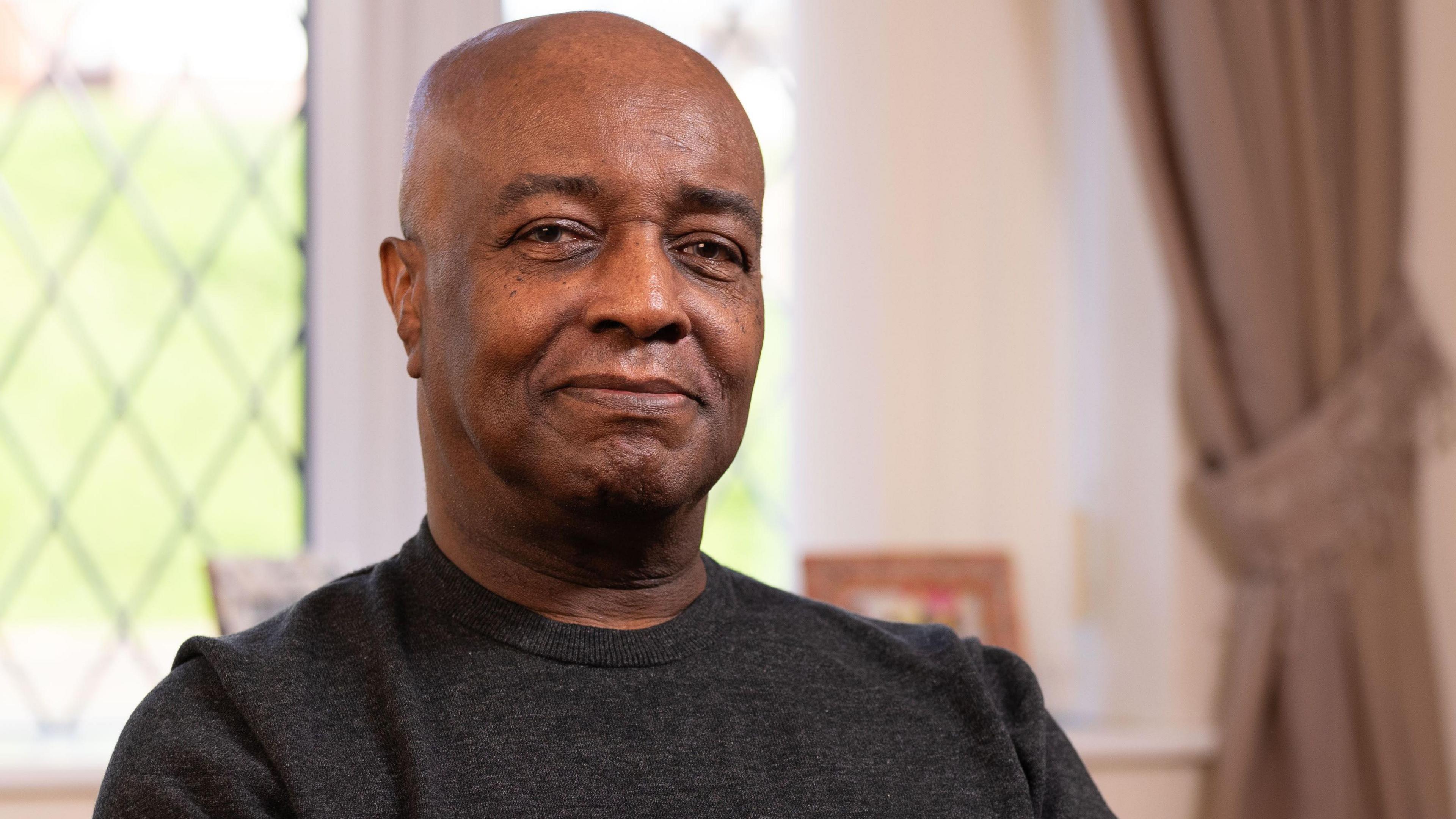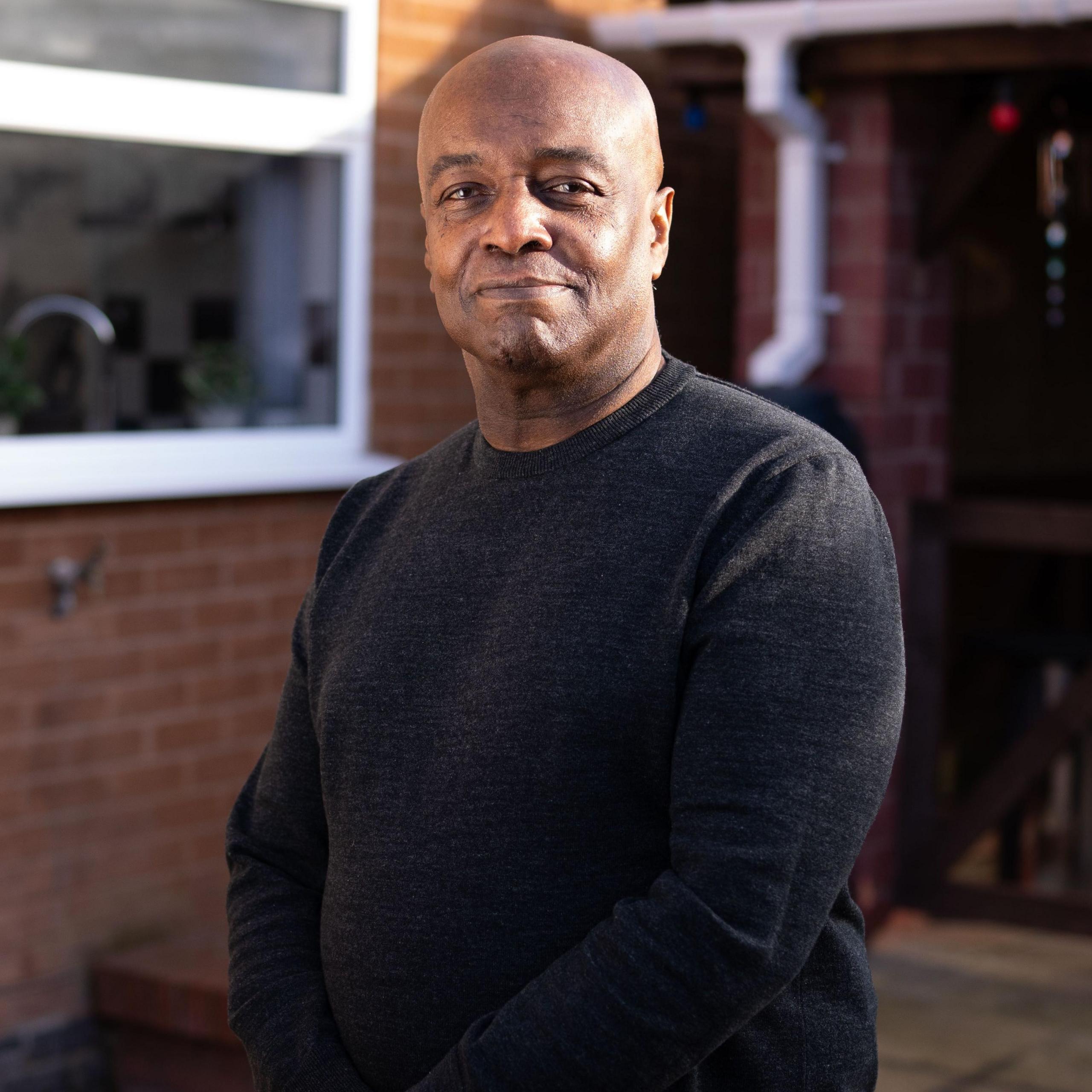'NHS must understand black people's experience'

Simeon Greene said he had to wait more than a year before being diagnosed
- Published
A man who waited more than a year to be diagnosed with cancer has called on health services to better understand black people’s experiences during their journey as patients.
Simeon Greene, from Wolverhampton, first saw a doctor in 2015 after noticing symptoms but he was not diagnosed with prostate cancer until the following year, more than 12 months after the initial meeting.
The 59-year-old - now a patient representative on the board of the West Midlands Cancer Alliance - said the delay was partly due to doctors dismissing his low prostate-specific antigen (PSA) levels that may have pointed to an issue as they were usually lower in black men than in white men.
He was diagnosed with cancer when he had a procedure to treat an enlarged prostate and tissue from the surgery was tested.
His comments came after a report by biopharmaceutical company Bristol Myers Squibb that said people from minority ethnic backgrounds faced longer delays in getting diagnosed with cancer than those from white backgrounds.
The report said people from these groups would usually experience an average of a year’s delay between first experiencing symptoms and receiving a cancer diagnosis.
They were, the report added, also more likely to attribute their symptoms to other conditions than white people (51% compared to 31%), and were less likely to take their symptoms seriously (34% compared to 21%).

Mr Greene said he did not want others to go through the same experience
Mr Greene, who had successful cancer surgery in 2017, told BBC Midlands Today he got involved in patient representation "because I didn’t want others to go through the same kind of experience that I had”.
He urged black men in particular to seek help from their GP if they experienced symptoms of his illness.
He said black men were more than twice as likely as white men to get prostate cancer, and two-and-a-half times more likely to die from it.
But Mr Greene, whose diagnosis came six months after his partner was diagnosed with breast cancer, said there were issues beyond the physiological for health services to consider.
He explained that during his experience as a patient, he was also embroiled in a battle related to the Windrush scandal, having been accused of not having the right documentation - a matter since resolved.
While he was fighting deportation, he said he could not get employment or claim benefits and feared he would have to sell his possessions to keep a roof over his head.
He said such experiences needed to be taken into account when health services treated patients from minority ethnic backgrounds.
He told the BBC: “The experiences that we have as black people with cancer treatment are greatly impacted by the other things that go on in our lives that we have no control over.
“Those who deliver the services need to have a better understanding."
If you have been affected by issues in this story, BBC Action Line has advice.
Follow BBC West Midlands on Facebook, external, X, external and Instagram, external. Send your story ideas to: newsonline.westmidlands@bbc.co.uk, external